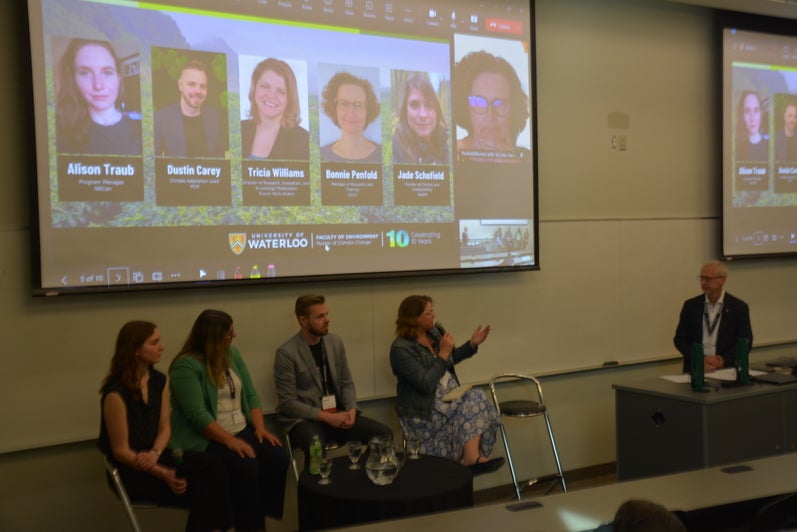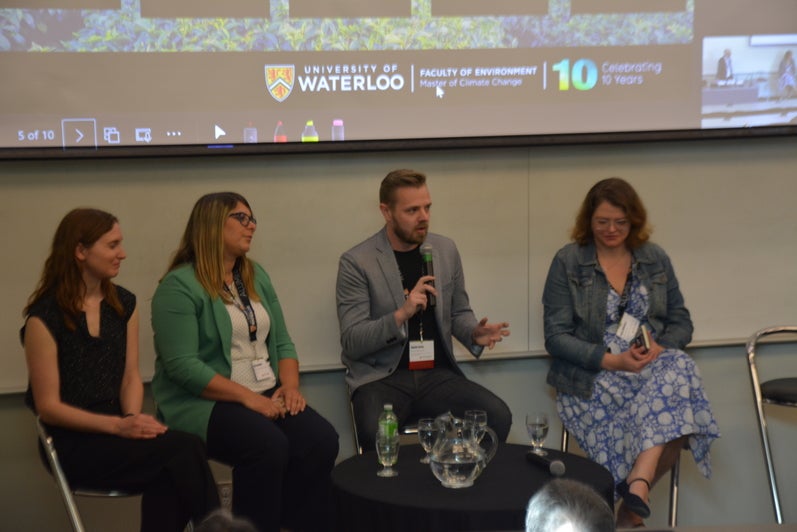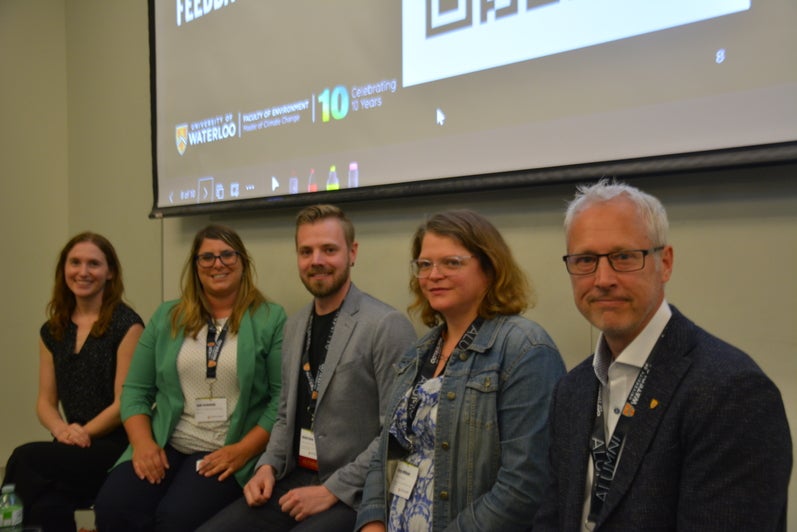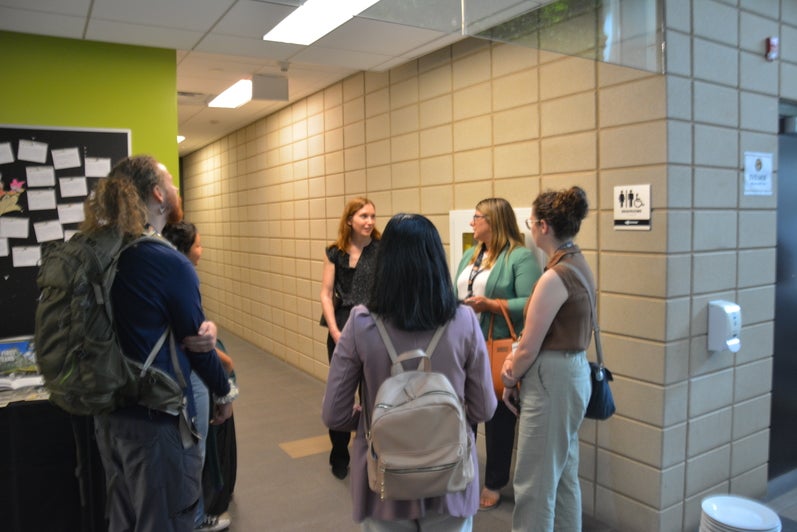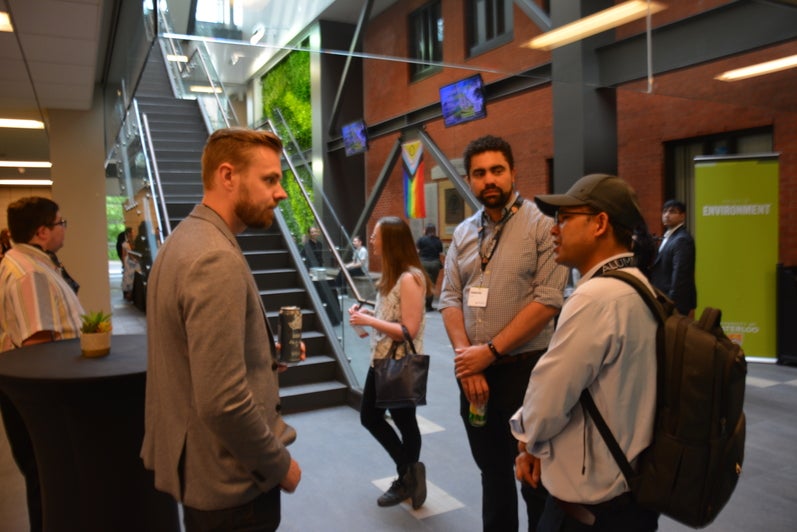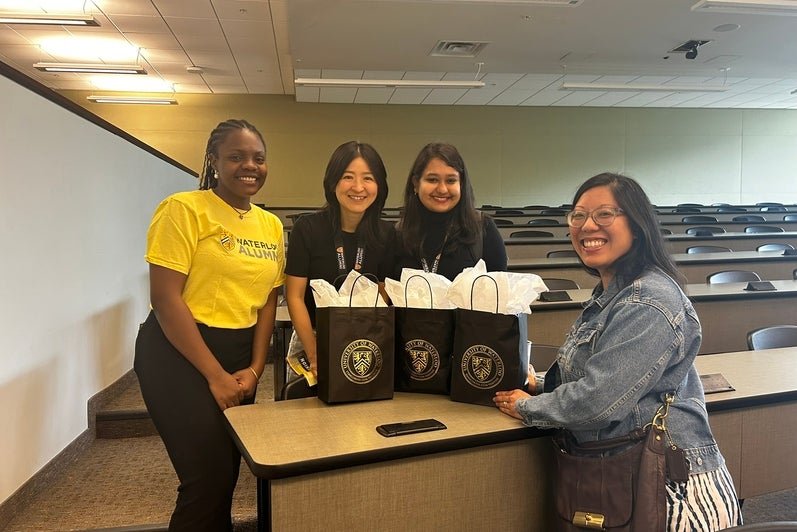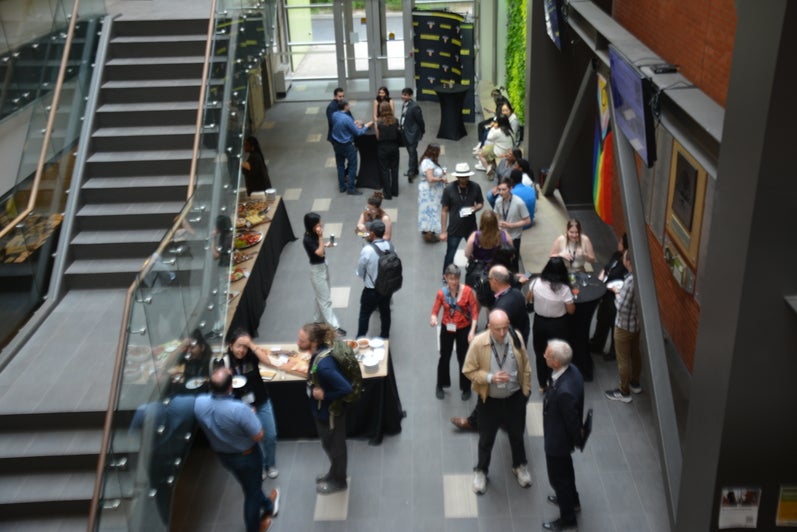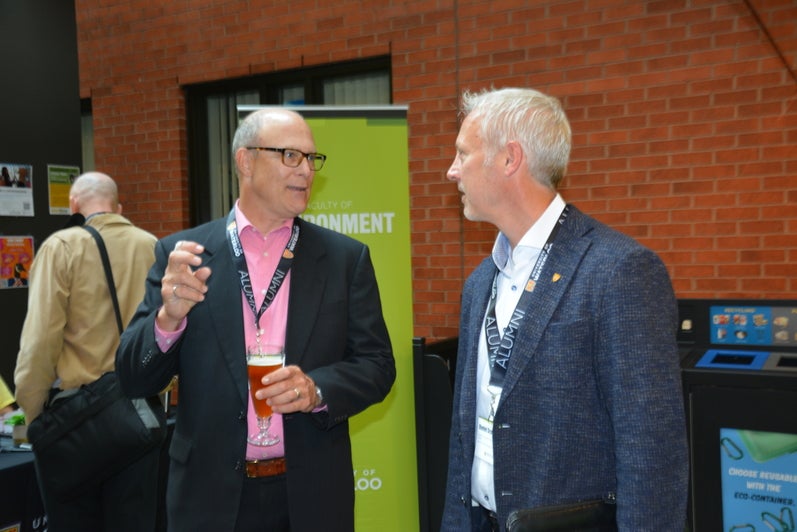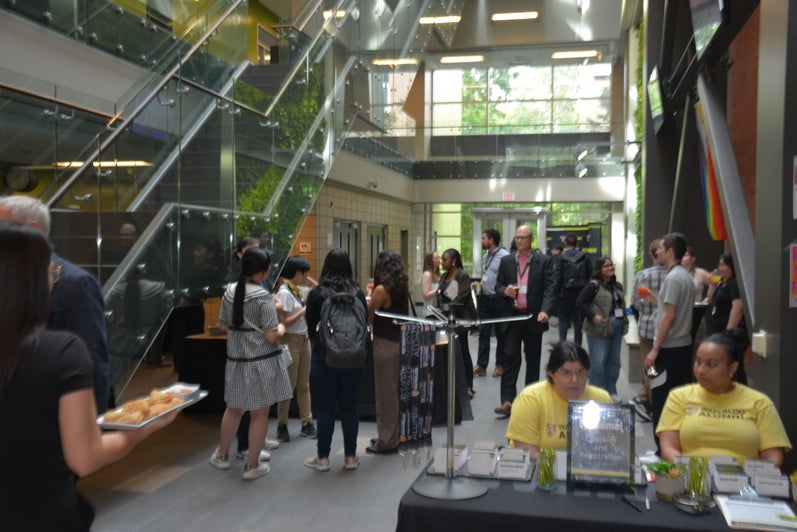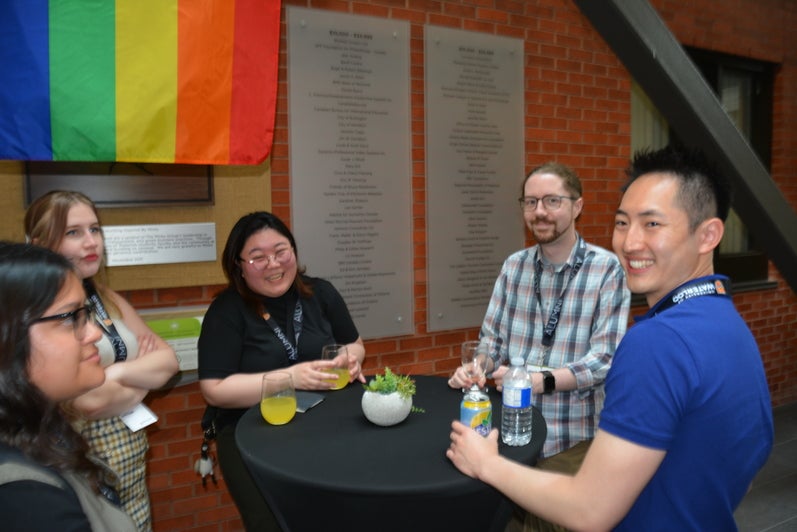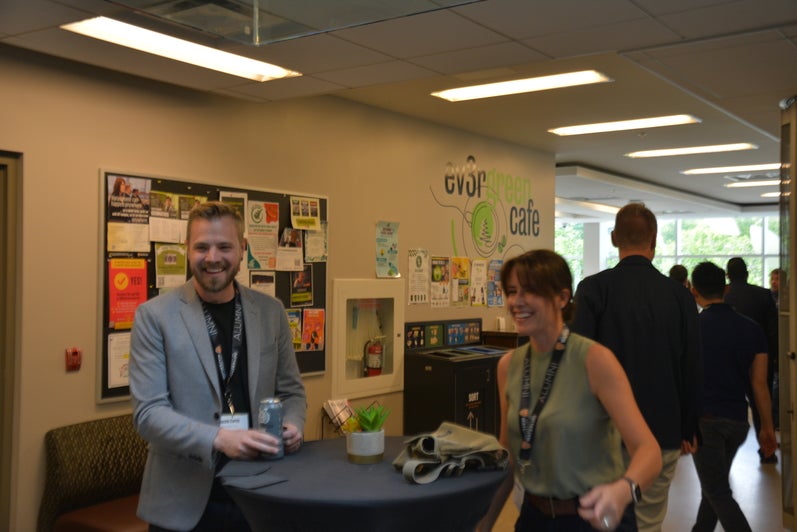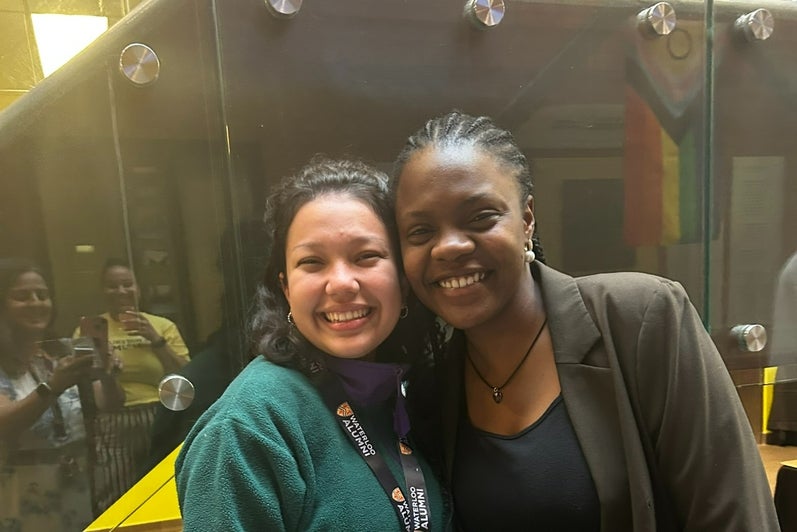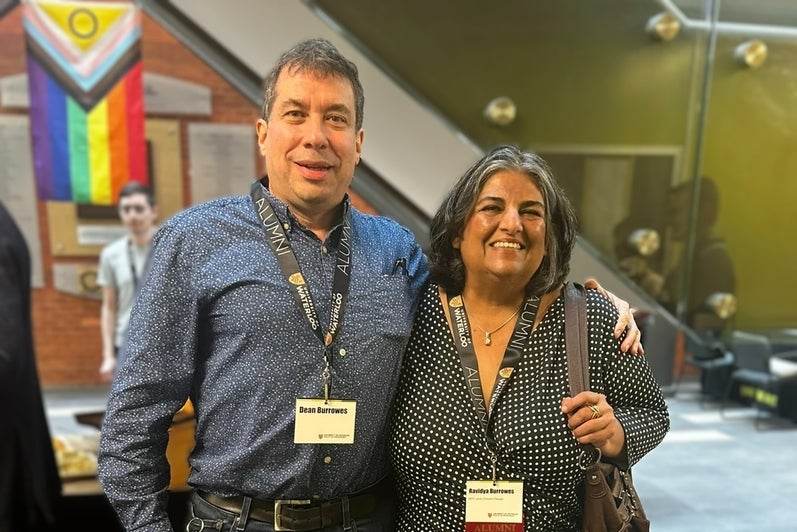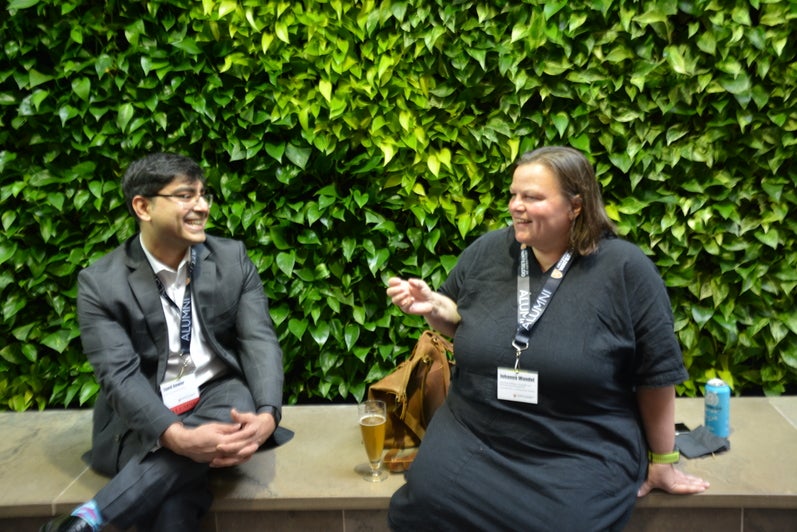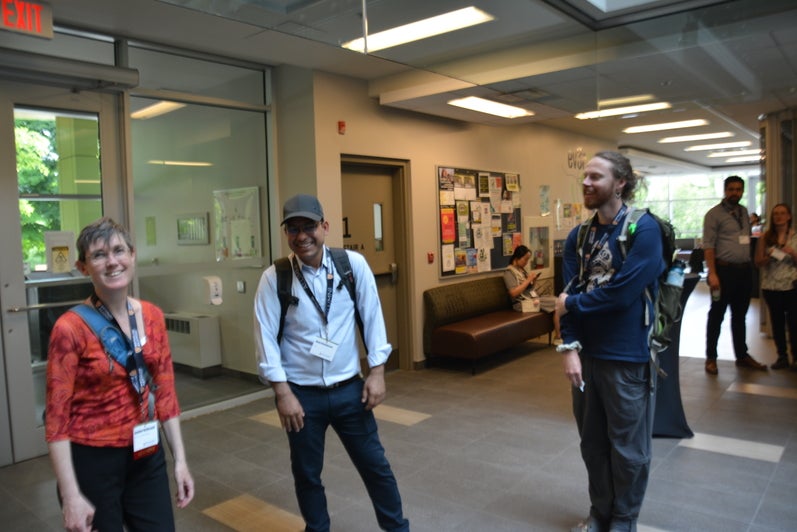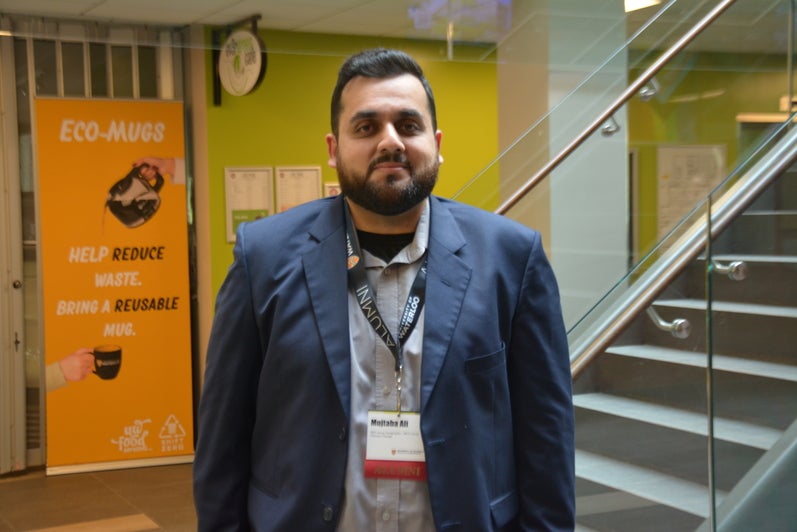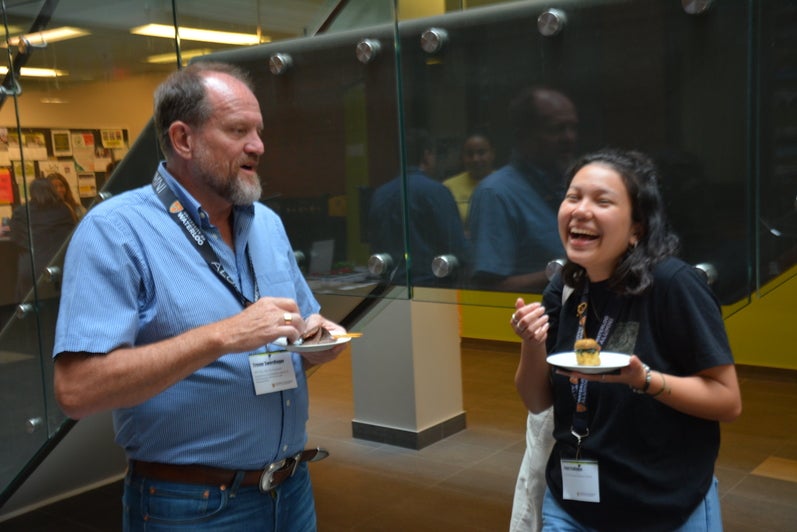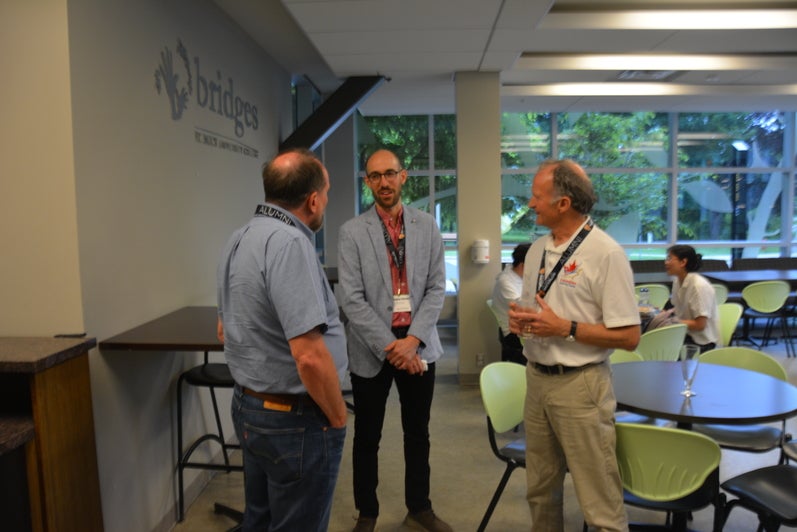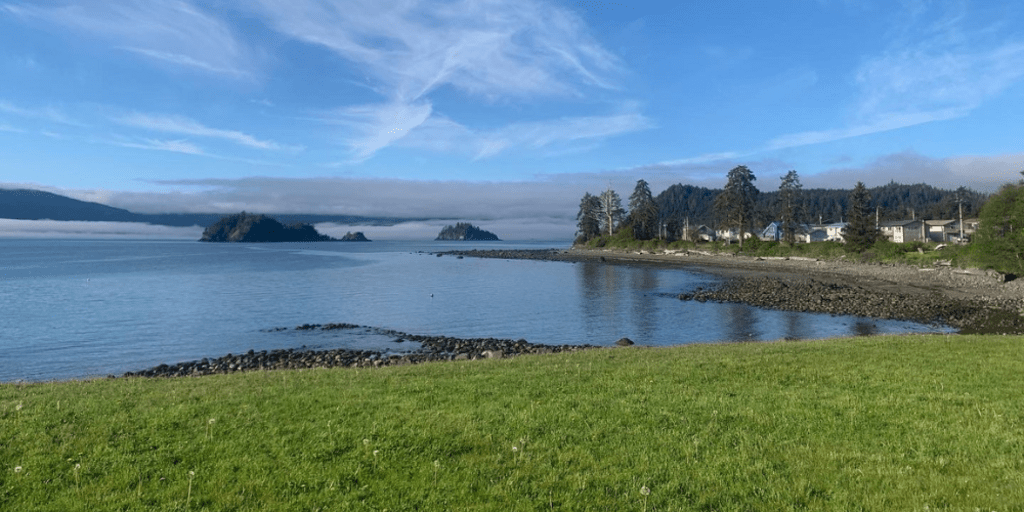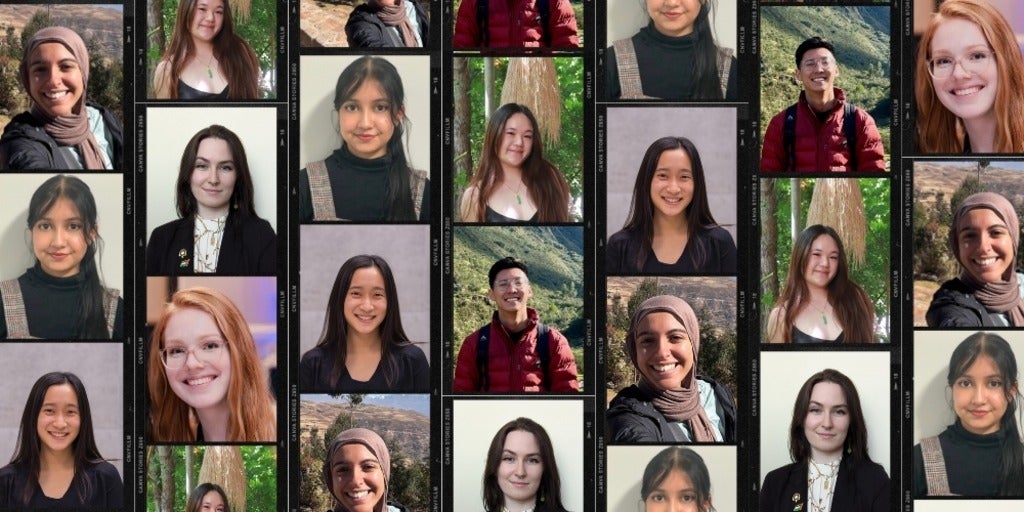Bridging the climate talent gap: Reflections from a decade of the Masters of Climate Change program
By: Ayush Verma | Estimated reading time: 3:00
The Masters of Climate Change (MCC) program from the Faculty of Environment, a first of its kind in the world, celebrated its 10th year anniversary on Saturday June 1st, 2024. The event saw a gathering of over 100 undergraduate students, current MCC students, alumni, partners, staff and faculty, who attended a panel discussion on Bridging the Climate talent gap.
The discussion was moderated by Dr. Daniel Scott, professor in the Department of Geography and Environmental Management and founding director of the MCC program, and featured experts from a wide range of sectors including government and industry namely:
- Alison Traub - Program Manager, Climate Change Impacts & Adaptation at Natural Resources Canada
- Dustin Carey – Lead, Climate Adaptation at Federation of Canadian Municipalities
- Tricia Williams - Director of Research, Evaluation and Knowledge Mobilization at Future Skills Centre
- Bonnie Penfold – Manager of Research and Training at Environment and Climate Change Canada
- Jade Schofield – Director of Climate and Sustainability at Delphi
Together the panelists shared their insights on critical challenges and opportunities related to climate change and the evolving skills needed in the workforce across sectors, both nationally and globally.A key point of discussion was the nature of the climate change skills gap. The panelists unanimously agreed that the urgency for specialized skills in climate change mitigation and adaptation is growing. The demand for these skills is outstripping supply, highlighting a strategic gap that needs to be addressed if Canada is to successfully transition to a low carbon economy and strengthen its climate resilience.
The importance of addressing this skills gap was underscored by other factors shaping this century. The need for climate-related skills has surged ahead of the available talent pool, and job requirements are evolving rapidly, even if job titles remain the same. Sustainability practices have advanced significantly, moving from simple recycling programs to comprehensive carbon taxation policies and major investments in adapting to the changing climate. The panel emphasized that because climate change impacts all sectors and communities, every job is partially a climate change job and university graduates from Engineering to Environment need to have foundational climate change knowledge to support their specialized disciplinary skills. Addressing the skills gap will facilitate climate discussions across all sectors, making them a core part of decision-making processes rather than an afterthought.
The panel also discussed what individuals can do to bridge this gap. They discussed how engaging in volunteer work to understand the language and priorities of organizations, can help develop the in-demand skills needed in the job market. Embracing climate literacy involves understanding the broader values and worldviews connected to environmental stewardship.
On the institutional level, universities have a crucial role to play. They should continue to work closely with employers to develop curricula that meet workforce needs, ensuring graduates are prepared for success. The government and businesses can also make a significant impact by investing in professional development training to support effective implementation of climate strategies.
During the audience discussion period, the challenge new graduates face in finding jobs in the field was a common voiced concern.The panelists encouraged graduates to consider entry-level roles and short-term contracts to gain experience and build their careers. They emphasized the importance of developing communication and networking skills, reaching out to professionals, and understanding how workplace dynamics can create valuable career opportunities.
Each panelist shared valuable tips for success:
- Allison’s tip: Network, reach out to individuals to get to know the vocabulary of the workplace.
- Dustin’s tip: Don’t be discouraged if your first job is not your dream job.
- Tricia’s tip: Articulate your competencies and skills beyond just holding a degree.
- Bonnie’s tip: Believe all jobs can be climate jobs; push for transformational change.
- Jade’s tip: Get your foot in the door, start with contract positions to gain valuable experience, and use that to leverage what you do want to do.
Dr. Scott closed the event with heartfelt remarks, thanking Faculty of Environment Dean’s office for their leadership in the creation of the program, and MCC administrators for their tremendous contributions over the past decade. He reflected on the program’s impact, and thanked students and alumni for their passion that brought the MCC program and its vision to life.
The celebration concluded with a lively reception featuring locally sourced snacks, hors d'oeuvres, and drinks.
This 10th anniversary event not only highlighted the success of the MCC program but also underscored the critical importance of bridging the climate talent gap. The insights shared by the panelists and the vibrant community of students and alumni showcase a promising path forward as our collective efforts shape a more sustainable world.
